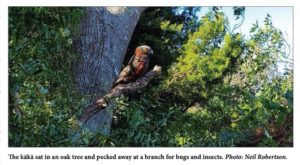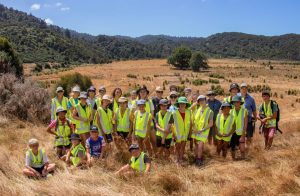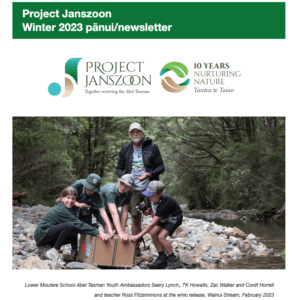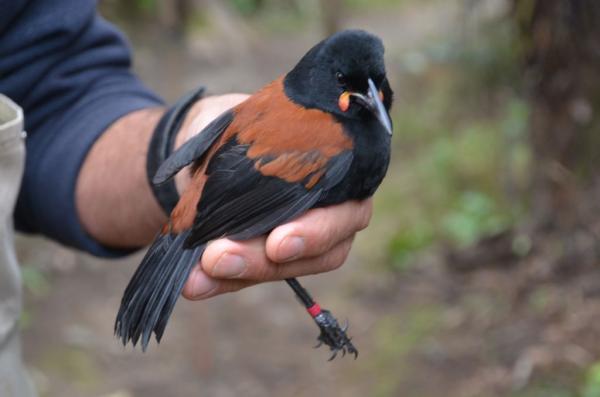
[Adult SI saddleback after capture – photo Ingrid Hutzler]
Saddleback belong to a family of birds ( the wattlebirds or Callaeidae) which is known only from New Zealand. The other members of this family are the kokako and the now extinct huia.
Saddleback have a rather naïve habit of roosting and nesting close to the ground so were one of the first species to disappear from mainland NZ following the arrival of rats. It is interesting to reflect that it was exactly 50 years ago that rats colonised the last safe habitat for South Island saddleback on BigSouthCapeIsland – off Stewart Island. The subsequent extinctions of bush wren, South Island snipe and the greater short-tailed bat were a devastating example of how prone our fauna is to these predators. However the efforts to save the saddleback from a similar fate were successful with their transfer to adjacent predator-free islets. As techniques for rat eradication have advanced species translocations have become more common and a key tool for bird conservation throughout the country. This latest effort from the Birdsong Trust takes the total number of island populations of South Islandsaddleback close to twenty.
Mainland efforts for bird conservation take continual work to reduce predator numbers; the gains are hard-fought and not always easy to measure. By way of contrast, with small islands it is possible to eradicate the pests and the borders can be well defended . Introductions such as this are very likely to be successful whereas it couldn’t be contemplated on the mainland despite the best pest control methods currently available. For these reasons island translocations come as light relief for wildlife managers and a cause for celebration.
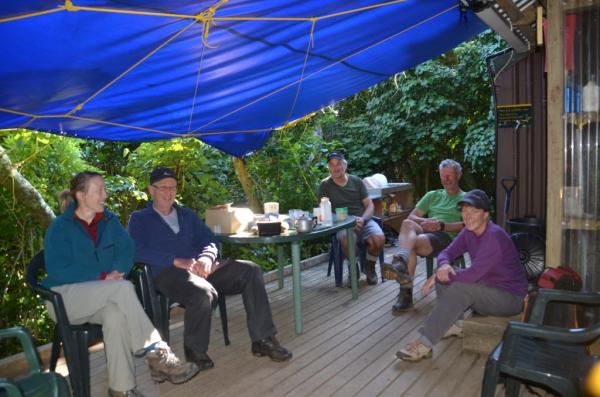
[ the capture team hears that all birds were released safely – Photo Ingrid Hutzler]

